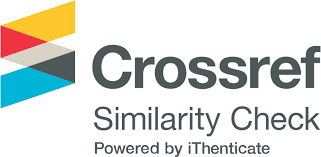The leadership styles of social enterprise managers and its relationship to the job satisfaction of teachers and specialists in this enterprises.
DOI:
https://doi.org/10.59743/jaf.v4i1.86Abstract
the current research sought to know the leadership styles of the managers of social institutions in the cities of Zliten and Khums and their relationship to the job satisfaction of teachers and specialists, where the researcher used the descriptive survey method to collect data, and used two scales, one of which was to measure leadership patterns and the second to measure job satisfaction And after distributing it to all teachers and specialists of social institutions of the teachers and specialists during the academic year 2019/2020, the researcher has verified The reliability and reliability of the tool. After using the appropriate statistical methods, the study reached the following results :
- The dominant leadership style among social enterprise managers is the transformational one, followed by the democratic one, while the autocratic style is the least prevalent
- - There are no differences between the members of the sample in the practice of leadership patterns, that is, the gender variable of the director of the institution - years of service - educational qualification - the monthly income of the director of the institution, has no effect on the practice of a specific style of leadership.
- The job satisfaction level of the sample is average, except after salaries and incentives, which was at a low level.
- The gender of the director of the institution has no effect on the level of job satisfaction except after achieving happiness.
- Duration of service years for the director of the institution and the educational qualification of the director have no effect on the level of job satisfaction.
- The values of (R) were statistically significant in all dimensions of leadership styles, as this relationship was positive in the democratic style and the transformational pattern, that is, job satisfaction increases with the rise of managers' exercise of these two types of leadership, while the relationship was negative in the autocratic and missionary style, that is, Job satisfaction decreases as a result of managers practicing these two patterns
Downloads
References
إبراهيم أبو فروة (1996) الإدارة المدرسية، طرابلس، منشورات الجامعة المفتوحة.
بشير عريبات (2012) أنماط القيادة التربوية السائدة لدى رؤساء الأقسام في جامعة البلقاء التطبيقية وأثرها على الأداء الوظيفي لأعضاء هيئة التدريس، مجلة الجامعة الإسلامية للدراسات التربوية والنفسية المجلد (20)، العدد (2).
جاهل موسى ونويوة محمد (2017) أثر المهارات القيادية على أداء العاملين، دراسة ماجستير، جامعة محمد بو ضياف.
خولة خمار (2017) القيادة وأثرها على الرضا الوظيفي لدى العمال، دراسة ماجستير، جامعة العربي بن مهيدي.
سميرة يحي دحلان (2013) أنماط القيادة السائدة لدى مديري المدارس الثانوية، محافظات غزة وعلاقتها بالرضا الوظيفي للمعلمين، رسالة ماجستير، جامعة الأزهر.
طارق عبد الحميد البدري (2001) الأساليب القيادية والإدارية في المؤسسات التعليمية، الأردن، عمان: دار الفكر للطباعة والنشر والتوزيع.
عبدالمؤمن فرج الفقي (1994) الإدارة المدرسية المعاصرة، منشورات جامعة بنغازي، ليبيا.
علي أحمد عياصرة (2006) القيادة والدافعية في الإدارة التربوية، عمان: دار الحامد للنشر والتوزيع.
غسان محمد السادة (2014) الشخصية القيادة للأستاذ الجامعي وعلاقتها بمستوى كفاءته المهنية من وجهة نظر طلبته، مجلة علوم التربية الرياضية، المجلد (7)، العدد (2).
قاسم شاهين العمري (2009) أنماط القيادة الإدارية وتأثيرها في إنجاح المنظمات الحكومية، أطروحة دكتوراه، جامعة البصرة.
محمد سليمان العميان (2002)، السلوك التنظيمي في منظمات الأعمال، عمان: دار وائل للنشر.
هالة مصباح البنا (2013) الإدارة المدرسية المعاصرة، عمان: دار صفاء للنشر والتوزيع.
وهيب إبراهيم سمعان ومحمد منير مرسي (1975) الإدارة المدرسية الحديثة، القاهرة: عالم الكتب.




